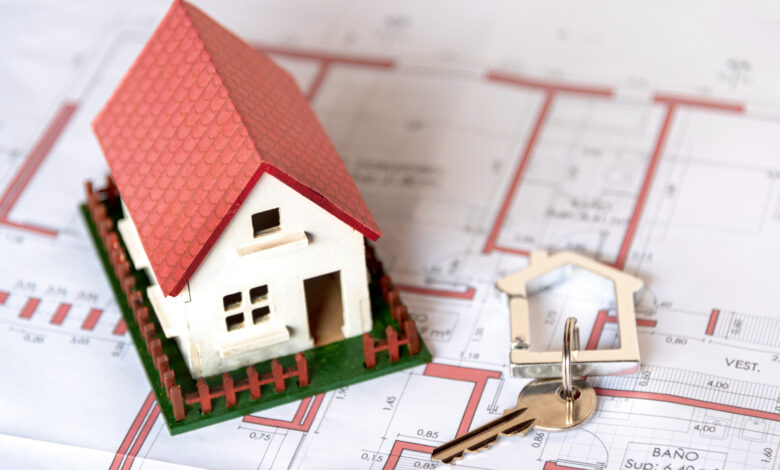How to Choose the Best Residential Land: Buying Land to Build

Introduction
Buying residential land can be an exciting yet daunting task. Whether you’re looking for land to build on or simply investing in property, knowing how to choose the best residential land is crucial. From location to legal issues, several factors demand attention. So, here’s a complete guide filled with expert advice and tips to help you make an informed decision.
Understanding Your Needs
Before you dive into the property market, it’s essential to understand what you need. Are you planning to build a family home, or is it an investment for future development? Knowing your objectives will guide you through the process more effectively.
Types of Residential Needs:
- Family Home: Consider proximity to schools, parks, and amenities.
- Investment Property: Look at future growth potential in the area.
- Retirement Home: Think about quiet neighborhoods and accessibility to healthcare facilities.
Evaluating Location
Location is one of the most critical factors when looking for land to build on. The right location can add immense value to your property and ensure convenience in your daily life.
Factors to Consider:
- Proximity to Essential Services: Schools, hospitals, grocery stores.
- Public Transportation: Accessibility to buses, trains, etc.
- Neighborhood Safety: Low crime rates and good community reputation.
- Future Development Plans: Potential for area growth and appreciation.
For more tips on choosing the right location, check out this external guide.
Size Matters: Understanding Land Sizes
When buying land to build a house, understanding land sizes is crucial. Sizes are often measured in square meters, acres, or hectares, depending on the region.
Common Land Sizes:
- Small Lots (150-300 sqm): Suitable for urban homes or small townhouses.
- Medium Lots (450-900 sqm): Ideal for suburban homes with gardens.
- Large Lots (1200+ sqm): Perfect for estates or farms.
It’s essential to match the land sizes to your needs and future plans.
Land Types and Zoning Laws
Different types of residential land have various zoning laws. These laws dictate what kind of structures can be built on the land and must not be overlooked.
Common Land Types:
- Rural Land: Often used for farming, has fewer building restrictions but may lack utilities.
- Suburban Land: Ideal for family homes with close community amenities.
- Urban Land: Best for apartment buildings or row houses.
Zoning Laws to Consider:
- Residential Zones: Permits single-family homes, duplexes, etc.
- Mixed-Use Zones: Combination of residential, commercial, and industrial uses.
- Green Zones: Restricted to parklands and nature reserves.
For detailed zoning laws, visit your local government’s official website.
Infrastructure and Utilities
Before purchasing, it’s essential to check for existing infrastructure and utilities. Ensure the land has access to essential services like water, electricity, sewage systems, and good road connectivity.
Key Aspects:
- Water Supply: Check for availability and connectivity.
- Electricity: Ensure there are no issues with electrical supply.
- Sewage: A proper sewage system is crucial for hygiene.
- Road Access: Good roads are essential for connectivity.
Conducting a Site Visit
A physical site visit is indispensable when choosing land. Observing the landscape, soil quality, and surrounding environment can provide invaluable insights.
Checklist for Site Visit:
- Topography: Check for flat or sloped land.
- Soil Quality: Good soil is essential for a strong foundation.
- Drainage: Ensure there is no water logging.
- Neighbourhood: Observe the living conditions and amenities.
Budgeting and Financial Planning
Knowing how much you can afford will streamline the process. Costs can escalate quickly, so budgeting is vital.
Financial Checklist:
- Land Cost: Base price of the land.
- Taxes and Fees: Property tax, registration fees, etc.
- Development Costs: Utilities, roads, fencing.
- Building Costs: From foundation to finishes.
Consult with financial advisors and plan your budget to avoid any oversights.
Legal Considerations
Legal matters are an integral part of purchasing land. Ensure you have all the necessary legal documentation and clearances before finalizing the deal.
Key Legal Documents:
- Title Deed: Proof of ownership.
- Encumbrance Certificate: Ensure the land is free from legal dues.
- Land Use Certificate: Specify if the land is for residential use.
- Building Approvals: Ensure you have the necessary permissions to build.
Expert Tips to Buy Land
Here are some additional expert tips to consider when buying land.
Tips:
- Work with a Reputable Real Estate Agent: They can provide invaluable insights.
- Consider Future Value: Think long-term about the value of your investment.
- Use Online Tools: Various websites offer comparative market analysis.
For more in-depth expert advice, check out this comprehensive guide.
Conclusion and Next Steps
Summarizing, choosing the best residential land involves understanding your needs, evaluating the location, considering land sizes, and navigating through zoning laws and legal considerations. Follow these expert tips to ensure a wise investment that fulfills your dreams.
Next Steps:
- Conduct thorough research.
- Speak to local experts and real estate agents.
- Arrange site visits.
- Make an informed and wise decision.
Call To Action
Ready to find the perfect piece of land for your dream home? Visit our website at reapse.co to explore a wide selection of residential, commercial, and agricultural properties. Take the first step towards owning your ideal land by booking a FREE CONSULTATION today. Our experts are here to help you with all your land needs and questions.
Leave your questions and comments below, and don’t forget to share this post with friends who might benefit from these insights!
Check our other blog posts for more useful information.
FAQs
1. What are the steps to take after buying land to build a house?
- After purchasing land, you’ll need to obtain necessary permits, conduct soil tests, and hire professionals like architects and builders. Next, plan your construction timeline and secure financing if needed.
2. How do I determine if a piece of land is suitable for building?
- Check zoning laws, conduct soil and topography assessments, and ensure access to utilities. Consulting with builders and surveyors can provide additional insights.
3. Can I build any type of house on the land I buy?
- The type of house you can build depends on local zoning laws and building codes. Some areas have restrictions on the size, style, and use of residential structures.
4. What is the importance of a land survey before purchasing?
- A land survey provides detailed information about the property’s boundaries, topography, and potential issues. It ensures you know exactly what you’re buying and can prevent future disputes.
5. How can I ensure that the land I buy has all necessary utilities?
- Check with local utility companies to verify the availability of water, electricity, sewage, internet, and cable services. If utilities are not readily available, investigate the cost and feasibility of installing them.




